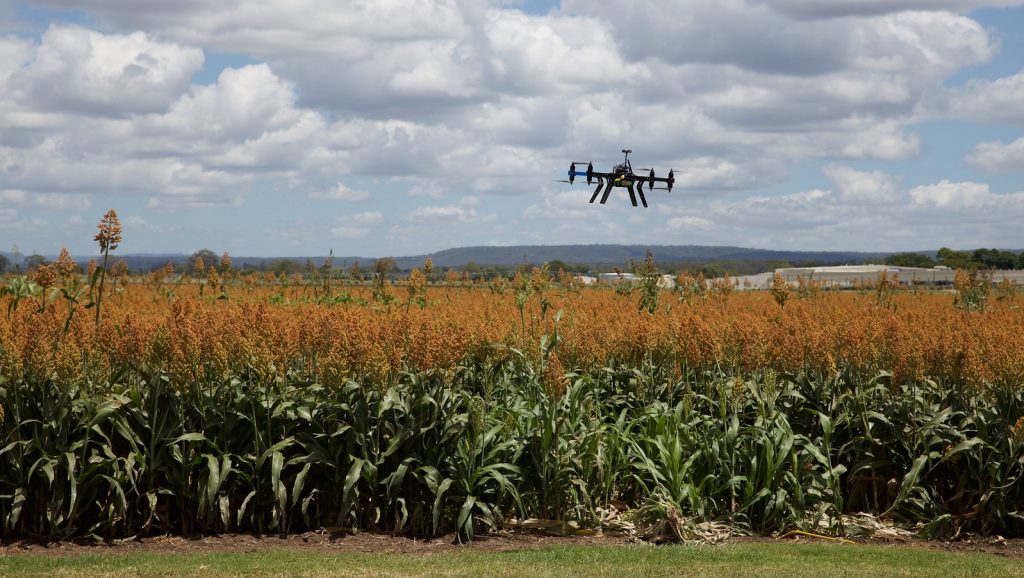South Africa’s esports scene is set for a major showdown as Hyprop and MTN introduce SHIFT COD, a Call of Duty tournament forming part…
How agritech can save SA’s smallholder farmers [Sponsored]

South Africa’s agricultural sector is dualistic, characterised by a highly commercial sector running parallel to a smallholder sector of two million dominated by black producers who are still finding it difficult to become sustainable and commercial.
Smallholder farmers face significant challenges – particularly in the current socio-economic environment and the growing food crisis as millions of poor South Africans cannot afford food.
The biggest challenges they face are: lack of infrastructure, access to competitive markets, production and business skills, funding and financial support to re-invest in their farming activities, and an inability to comply to food safety requirements.
Added to these are lack of land ownership and access to arable land, drought, inadequate water resources, land degradation and soil erosion.
And with only 1.43% of the total 2020/21 budget allocated to agriculture and rural development, these farmers will struggle to overcome these barriers to growth.
Even the R1.2-billion dedicated to providing assistance to mainly financially distressed small-scale farmers in certain agricultural sectors as a result of the coronavirus pandemic will not totally mitigate the challenges these farmers face.
This makes it clear that creative and pioneering solutions need to be developed to help the country’s smallholder farmers become more productive, efficient and competitive.
Harnessing the power of agritech
Technology – specifically agritech – has the power to transform the industry and drive widespread positive change for South Africa’s smallholder farmers by improving yield, efficiency, and profitability.
Agritech innovations are already disrupting the sector in South Africa, and innovation will grow exponentially as more solutions continue to be introduced.
This includes the adoption of technology such as smart farming apps that assist farmers in keeping and maintaining accurate farm records; blockchain technology that allows the transparency and traceability of commodity trading from the farmer to the buyer; smart farming sensors that reveal changes in temperatures, rainfall and weather patterns; and lastly the use of drones for effective and efficient crop management and on-demand fertilisation and irrigation.
These possibilities are why Microsoft South Africa has introduced its agritech initiative as part of its Equity Equivalent Investment Programme (EEIP) strategy with the Department of Trade and Industry (dti).
The EEIP allows Microsoft to invest in programmes designed to meet the goals of Broad-Based Black Economic Empowerment (B-BBEE) in key sectors — of which agriculture is one because of its high job absorption capacity and impact on food security in the country.
Microsoft’s EEIP focuses on accelerating the pace of digital transformation in the country and enabling every individual to benefit from the digital era and the Fourth Industrial Revolution.
Unveiling Microsoft’s agritech initiative
As part of meeting this target, Microsoft’s agritech initiative aims to identify established tech companies in South Africa that can conceptualise, develop and roll-out high-impact solutions to address the challenges that the country’s black smallholder farmers face, as well as make a meaningful economic impact.
The solutions will need to specifically address the challenges identified by Microsoft that black smallholder farmers experience within the agricultural production value chain to:
- Improve efficiencies in farming to increase yields, create consistency and improve quality
- Reduce cost of production
- Conserve our natural resources
- Reduce post-harvest losses
- Improve access to local and international markets
- Improve compliance with legislation and other regulations
- Strengthen linkages through the value chain
- Make better access to information and intelligence available to farmers so they can make more informed decisions around not just production, but access to finance, access to markets and new developments.
“This agritech initiative provides an exciting opportunity for South African agritech companies to make a positive difference at grassroots level by working to solve the real-world challenges that the country’s black smallholder farmers face, especially in this critical environment we are currently living through,” says Asif Valley, National Technology Officer at Microsoft South Africa.
“By unleashing the unrivalled potential of technology, we can collectively create solutions that will allow for sustainable economic growth in one of our most critical, job-creating industries.”
Visit https://www.microsoft.com/en-za/eeip/agritech/ for more information.
This article was sponsored by Microsoft.
Featured image: clarrycola via Pixabay

